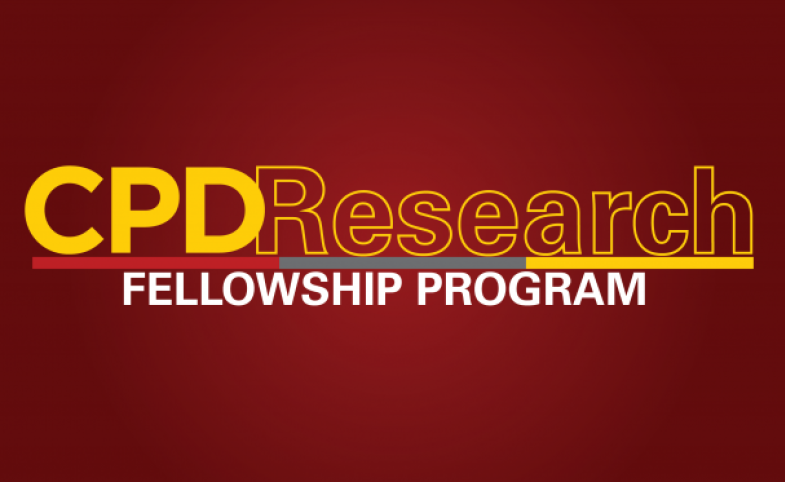
The Center on Public Diplomacy Announces 2009-2011 CPD Research Fellows
The USC Center on Public Diplomacy is proud to announce the first CPD Research Fellows: Kathy Fitzpatrick, Iskra Kirova, and Cynthia Schneider.
"These three Research Fellows represent an exciting range of backgrounds and expertise in the field of public diplomacy,” said Philip Seib, director of the USC Center on Public Diplomacy. “Their projects are as diverse as they are deeply relevant to the ever-growing scholarship on public diplomacy and the Center is pleased to support their research goals and publicize their findings.”
“The establishment of this new research program at the Center will add tremendously to the development of the academic field of public diplomacy, an objective that remains central to all disciplines taught at the USC Annenberg School,” said Ernest J. Wilson, III, dean of the USC Annenberg School for Communication.
About the CPD Research Fellowship
In August 2009, the Center launched a new research fellowship program designed to support and publicize the work of scholars and practitioners of public diplomacy. Selected from a competitive pool of international applicants by a faculty review committee, the CPD Research Fellows will each oversee a substantive research project that will yield at least two publications for the Center’s new publication series, CPD Perspectives on Public Diplomacy, and periodic posts to the CPD Blog. Three non-resident fellows will be named every year, each serving a two-year term.
To request a copy of the application form for the 2010-12 CPD Research Fellowship, please email cpd@usc.edu. The deadline for applications will be August 2, 2010.
About the 2009-2011 CPD Research Fellows
Fitzpatrick is professor and director of graduate studies in public relations at Quinnipiac University in Hamden, Connecticut. An attorney and accredited public relations professional, she has been teaching, writing and counseling on matters involving public relations, law and ethics for more than 20 years. Her current research addresses issues related to U.S. public diplomacy, which is the focus of her forthcoming book, The Future of U.S. Public Diplomacy: An Uncertain Fate (Brill). She has recently been named co-editor of the new Palgrave Macmillan Series in Global Public Diplomacy. Fitzpatrick has published extensively in scholarly and professional journals, frequently speaks at industry forums, and serves on the editorial review boards of Journal of Public Relations Research, Public Relations Review, Journal of Mass Media Ethics and Communication Quarterly.
Fitzpatrick will conduct a two-phased research study entitled U.S. Public Diplomacy’s Neglected Mandate: Advancing Mutual Understanding that will examine issues related to mutuality in U.S. public diplomacy. The first phase will explore why U.S. public diplomacy practitioners have largely ignored the domestic dimensions of public diplomacy, or the need to increase Americans’ understanding of foreign nations and peoples. The second phase will focus on the development of a “model of mutuality” that will help to advance thinking and practices in public diplomacy both at home and abroad.
Iskra is a graduate of the pioneering class of the USC Master of Public Diplomacy program and holds a second Master's degree in International Relations from Sofia University. She is interested in policy research and advocacy in the sphere of conflict prevention, democracy promotion and good governance.
Iskra worked for three years as a Research Associate at the USC Center on Public Diplomacy supporting the Center’s research and publications program and daily communications operations. Previously, she completed internships with the United Nations Department of Public Information and the Euro-Atlantic Integration Department of the Bulgarian Ministry of Defense. Since graduating from USC, Iskra has worked for the European Commission’s Directorate-General for External Relations, responsible for sectoral coordination in the field of education, training, culture and youth in the countries of the European Neighborhood Policy. She was also one of five recipients of the NATO Parliamentary Assembly research fellowship where she worked on non-proliferation issues and conflict resolution in the European neighborhood. Iskra speaks fluently Bulgarian and English, has advanced knowledge of French and German, and intermediate knowledge of Russian.
In a study entitled Russian Public Diplomacy – The Case of Ukraine and Georgia, Kirova will analyze Russia’s approaches to public diplomacy in regions that have vigorously contested its influence, but that nonetheless include large pro-Russian enclaves.
Cynthia P. Schneider is a Distinguished Professor in the Practice of Diplomacy at Georgetown University, and leads the Arts and Culture Dialogue Initiative within the Saban Center for Middle East Policy at the Brookings Institution. An expert on cultural diplomacy, she teaches, publishes, and organizes initiatives in the field of cultural diplomacy with a focus on relations with the Muslim world. Schneider served as U.S. Ambassador to the Netherlands from 1998 -2001, in which position she led initiatives in public and cultural diplomacy, biotechnology, cyber security, and military affairs. From 1994-1998, she served as Vice Chair of the President’s Committee on the Arts and Humanities.
Schneider currently teaches courses in Diplomacy and Culture at Georgetown University’s School of Foreign Service. From 1984-2005, she was a member of Georgetown’s art history faculty and published on Rembrandt and seventeenth century Dutch art. During the 1980s Schneider curated exhibitions at the Museum of Fine Arts in Boston and the National Gallery in Washington, D.C. She serves on the Boards of Directors of Wesley Theological Seminary and the Institute of Cultural Diplomacy.
Schneider’s research, entitled Public Diplomacy and Culture in Afghanistan and Pakistan, will focus on the impact of arts, culture and media in Afghanistan and Pakistan, and the subsequent implications for U.S. foreign policy.
Tags
Visit CPD's Online Library
Explore CPD's vast online database featuring the latest books, articles, speeches and information on international organizations dedicated to public diplomacy.
Popular Blogs
-
January 29
-
January 20
-
January 28
-
January 2
-
January 8








Add comment